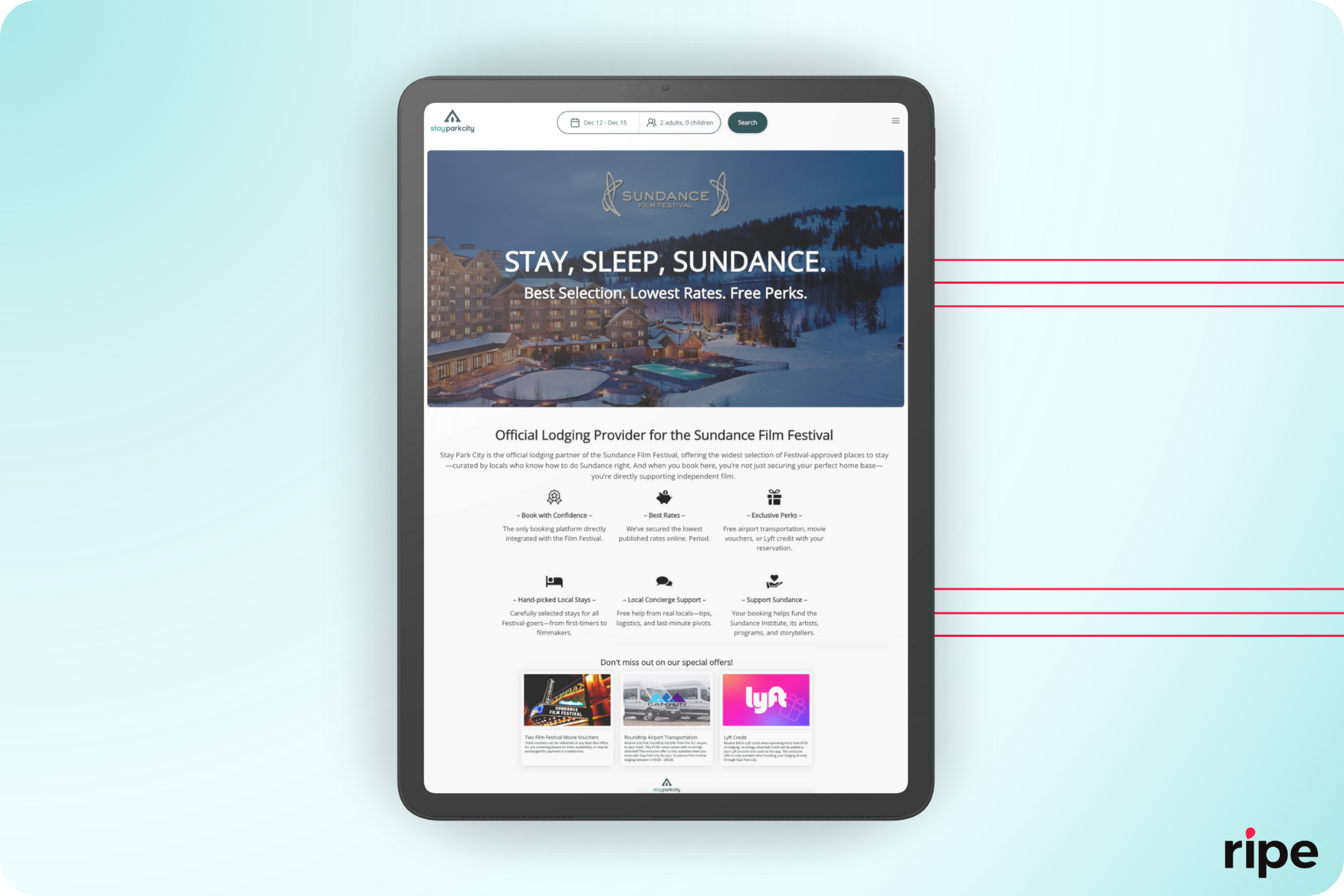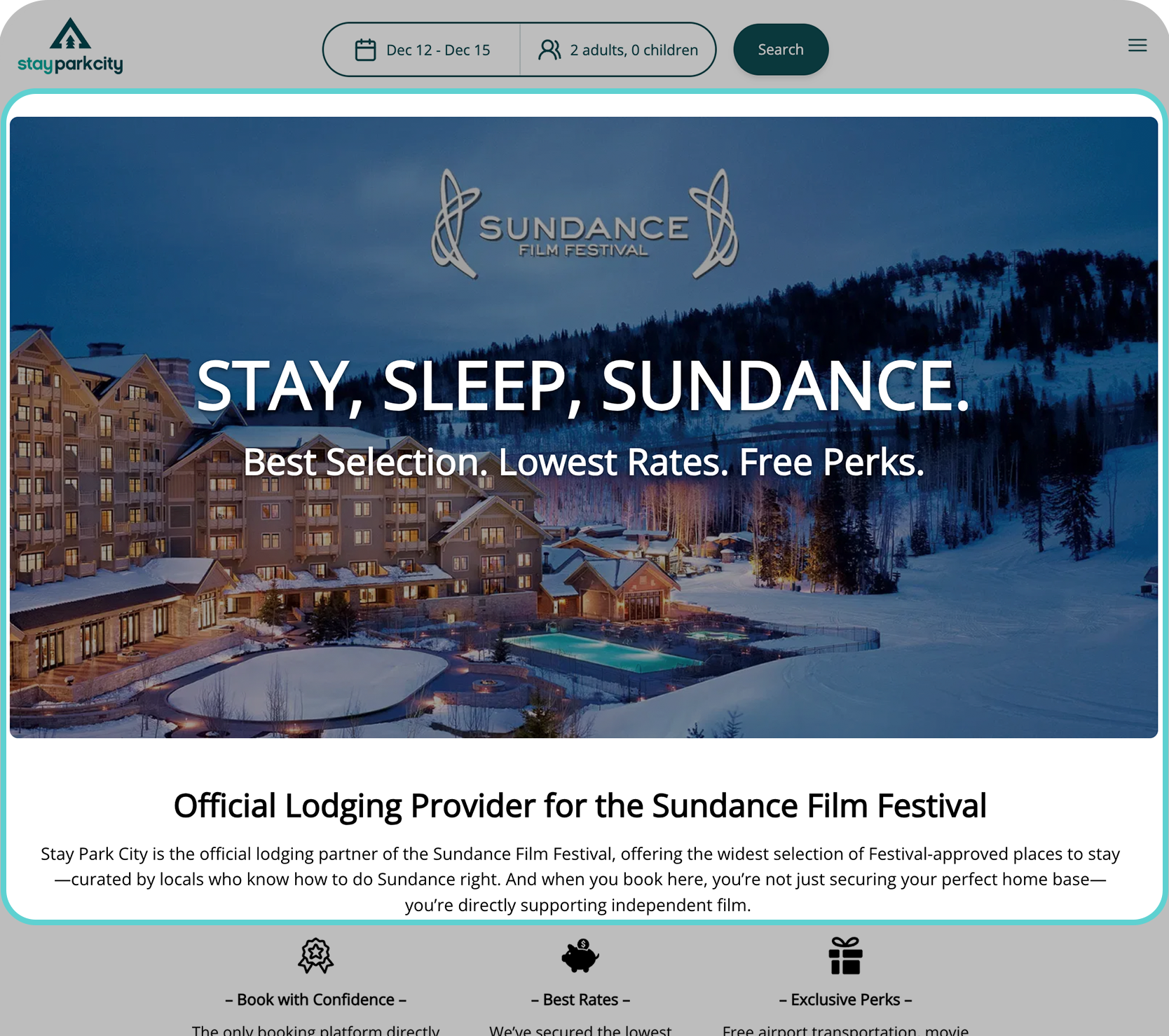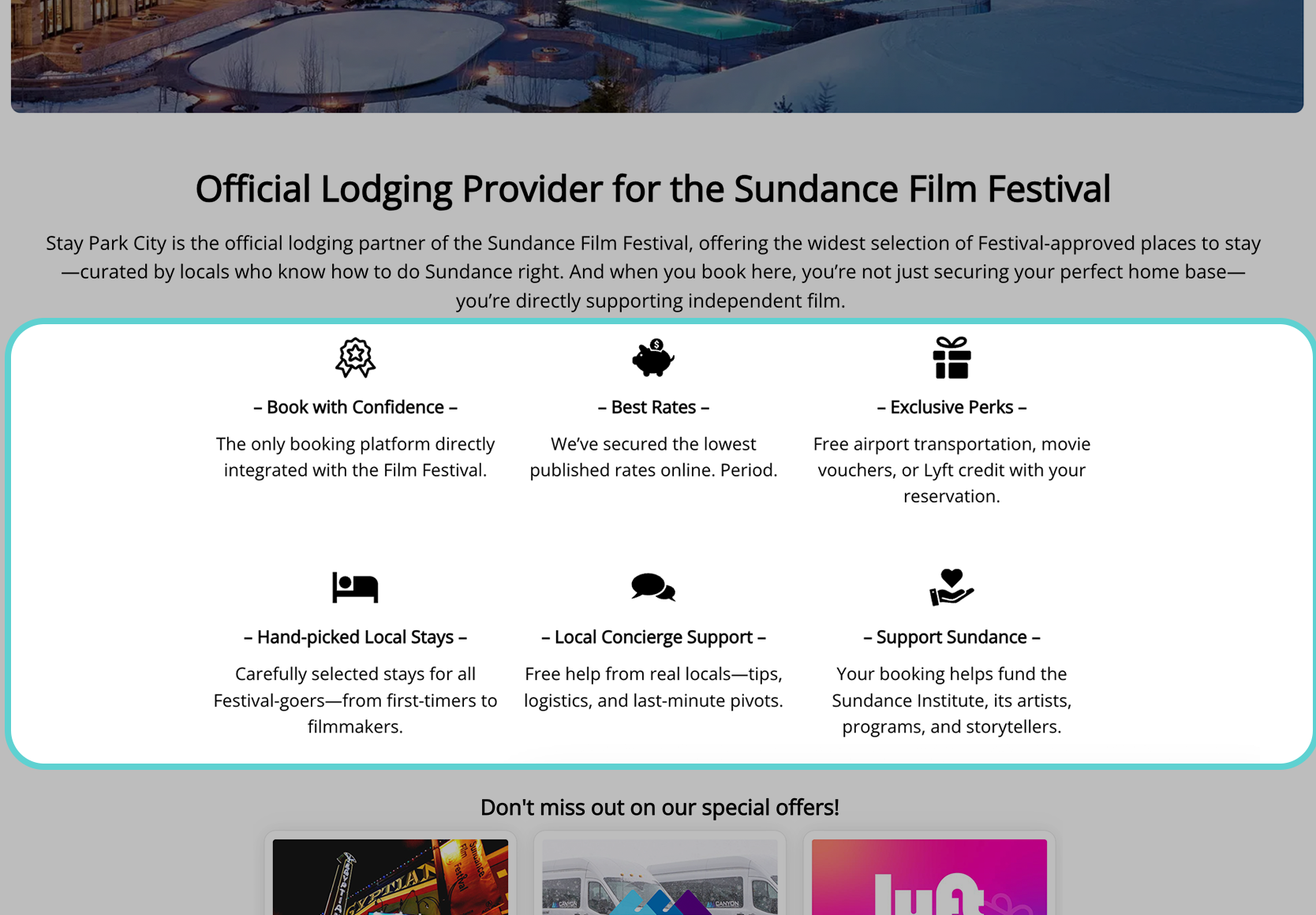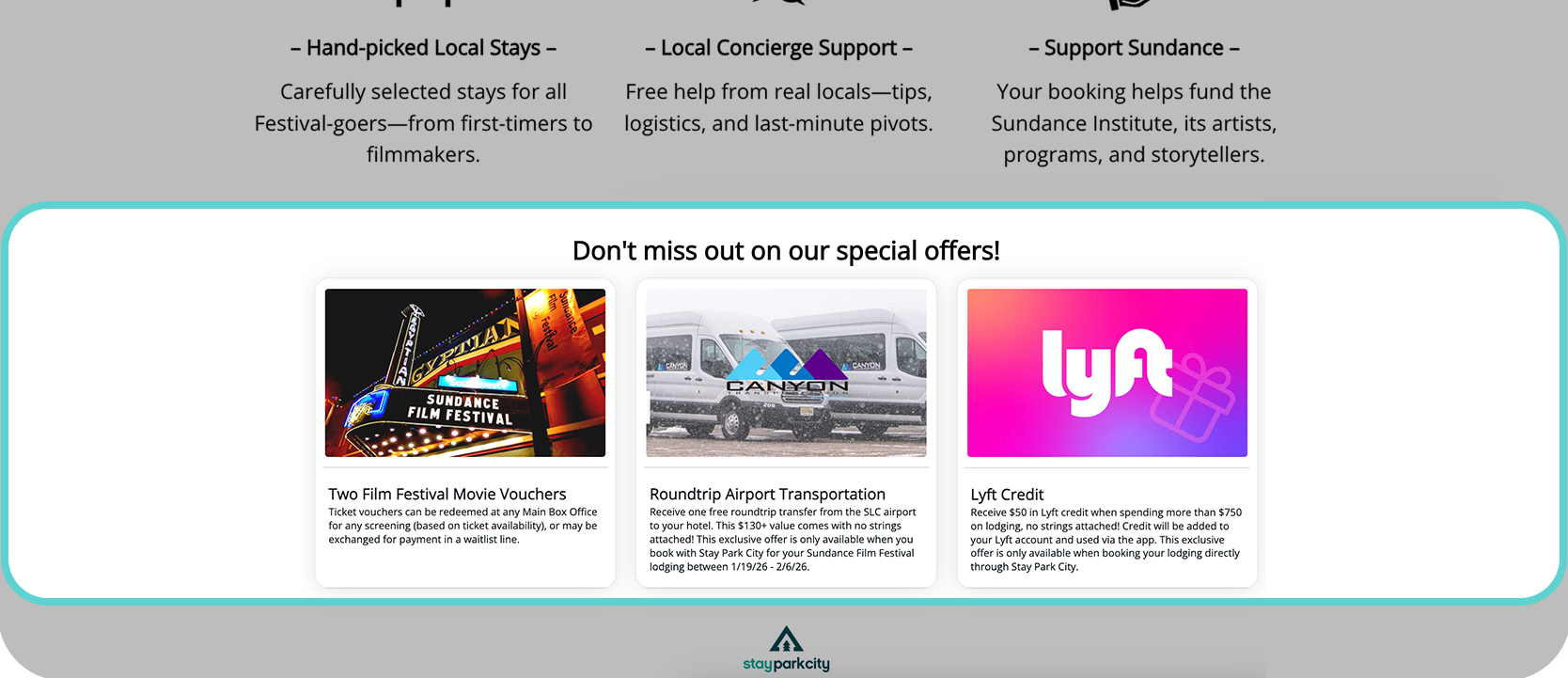Landing Page Best Practices
Landing pages play a critical role in shaping the traveler’s first impression and influencing their booking decisions. They serve as curated entry points designed to connect potential guests with the right accommodations while showcasing the unique value your platform offers. A well-designed landing page is more than just a pretty interface—it’s a strategic tool that aligns user intent with clear messaging, seamless functionality, and compelling calls to action. By guiding visitors toward booking with confidence, effective landing pages not only drive reservations but also strengthen your brand’s credibility and value in the eyes of your audience.
Why Landing Pages Matter
The primary role of a landing page is to increase booking conversion by offering travelers a qualified entry into the booking engine aligning to their purpose of travel. It should immediately communicate its purpose while offering a compelling reason for travelers to book through your platform. Clear messaging, intuitive design, and strategic content placement all work together to create an experience that resonates with users and encourages them to act.
It focuses on lodging—not event details—and highlights the benefits of booking on your site. It should guide users effortlessly toward their goal, reducing friction and making the path to conversion as straightforward as possible.
Types of Landing Pages
There are several types of landing pages, each designed to serve a different purpose and audience. Understanding when and how to use each type helps ensure your landing pages stay relevant, effective, and aligned with your broader booking strategy.
Client Landing Pages
These are general landing pages created for each client that link from CTA buttons. They serve as a bridge from the client’s main site to the booking engine, ensuring a cohesive user experience. These pages emphasize the client’s unique value propositions (exclusive rates, local expertise, or special perks), reinforce the client’s branding to build credibility with visitors, and ultimately highlight why travelers should book directly through the client’s platform.
Event Landing Pages
These landing pages are created for specific events, groups, or affiliate partnerships. They answer the traveler's question "Why should I book here?" These pages should emphasize the importance of booking accommodations through the event’s dedicated lodging page and outline benefits like a curated lodging selection, proximity to the event venue, special offers for attendees, or discounted rates. Event landing pages also serve as an opportunity for co-branding, creating a seamless entry point from the event website to yours that aligns with the users' expectations. These pages are essential for driving event-specific relevancy, building trust in your partnership, and ensuring attendees see, and take advantage of, the value in booking through your ITA Platform.

Niche Landing Pages
These pages focus on a particular promotion, value add, featured area, or traveler need and link directly to relevant properties. Examples include:
- Promotional pages showcasing limited-time discounts or seasonal offers.
- Location-specific pages highlighting areas like “Downtown Hotels” or “Ski-In/Ski-Out Properties.”
- Amenity-focused pages catering to travelers looking for pet-friendly properties, luxury stays, or budget options.
These niche landing pages allow for hyper-targeted marketing campaigns and can significantly improve conversion rates by directly addressing the specific interests or needs of certain traveler segments. By leveraging the right mix of these landing page types, you can create a cohesive, user-friendly booking ecosystem that speaks directly to different audiences while maintaining consistency in your messaging and brand identity.
Key Elements of an Exceptional Landing Page
A Focus on Lodging
The core purpose of the page is to promote lodging options. While event details can provide context, they should never overshadow the primary objective: booking accommodations. Integrating event-relevant value adds, such as discounts or perks, can strengthen the page’s appeal without detracting from its focus.

Why Book Here
Your landing page should always answer the question: "Why book here?" Whether it’s exclusive offers, official lodging provider status, or proceeds supporting local events, these unique benefits should be front and center. This messaging is critical in helping travelers understand the added value your platform provides compared to other options.

Incorporating Value Adds
Value adds are exclusive offers for your travelers and can be a powerful differentiator for your platform. From an event-specific gift to bundled exclusives, these offers provide compelling reasons for travelers to book through your site. Introduce these incentives early and reinforce them throughout the booking journey. For clients leveraging Bandwango or similar services, bundling offers can further enhance the appeal of your platform.

Visual Appeal
First impressions matter. A clean, visually cohesive design ensures that users feel confident and engaged. Use high-quality imagery that reflects the destination’s unique charm and aligns with your branding. Images should also be optimized for fast loading to maintain a smooth user experience across devices.
Ensuring Quality and Consistency
It is important that we maintain high standards and ensure brand consistency through regular audits of your landing pages. We work with you to make sure your pages remain aligned with best practices and meet user expectations to optimize experience and conversion. Performance tracking provides valuable insights into what works and what doesn’t, enabling data-driven improvements over time.
Using landing pages with each of your event/group instances is one of the best ways you can help travelers understand the benefits of booking on your site, supports group and event partner logistics, and optimizes conversion and attribution.
Updated 9 months ago